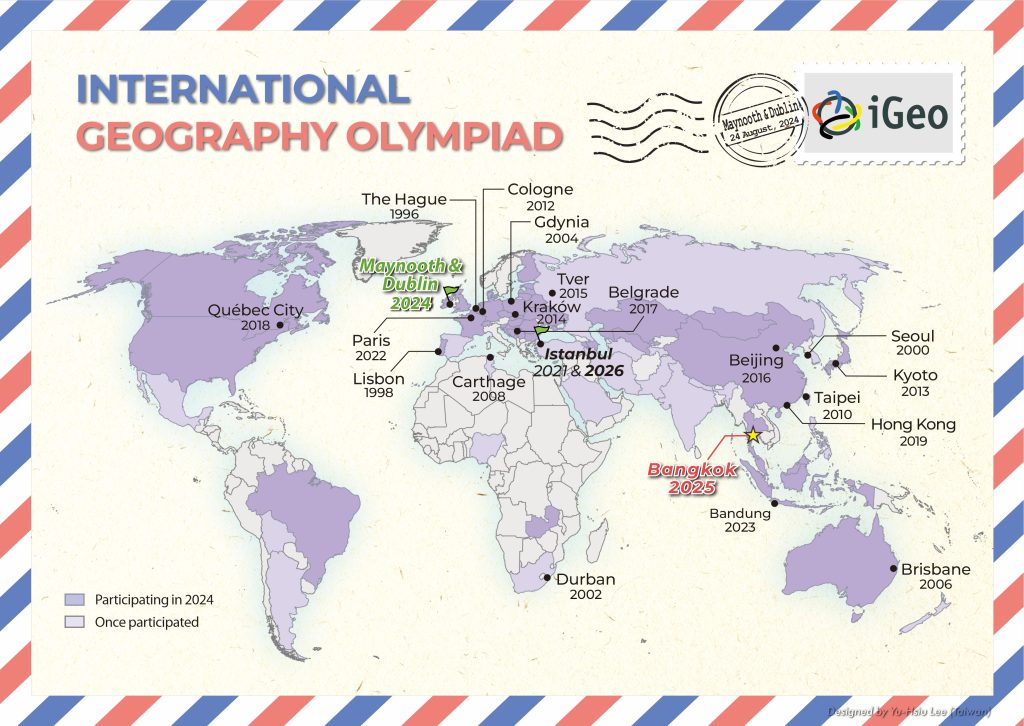
Towards One Aim through Different Pathways – Similarities and Differences in National Qualifying Competitions for the International Geography Olympiad
Dóra Bálint
This article focuses on a specific segment of education: talented students, more precisely, how different countries organize their national qualifying competitions for the International Geography Olympiad (iGeo). As the iGeo is the largest geography competition for secondary students globally, and each participating country must select four students through national qualifiers, it offers a valuable opportunity to compare and contrast differences across diverse educational and geographical contexts.
The study includes a short survey conducted among team leaders from 23 countries that have participated in iGeo at least twice.
The questions focused on:
- The types and weightings of tasks used in national competitions
- The number of rounds and applicants
- Preparation materials
Key Findings:
- Both similarities and differences were observed across countries.
- Small countries like Latvia, Denmark, and Switzerland had large applicant pools.
- France and the United States had relatively few applicants despite their size, due to geographical or educational constraints.
- Many countries model their national Olympiads on iGeo, using the same rounds (Written Test, Fieldwork, and Multimedia) and task weighting (40-40-20).
Some countries include additional rounds to test:
- Language proficiency (e.g., Hungary)
- Teamwork skills (e.g., Canada)
- Geographical topography skills (e.g., Lithuania)
Other notable variations:
- China uses innovations such as eye-tracking and AI analysis.
- In large countries like Canada, fieldwork is adapted to students’ local environments, as nationwide travel for one-location fieldwork is not feasible.
- Language barriers affect participation in some non-English-speaking countries (e.g., Tajikistan, Kazakhstan).
- Administrative systems can also influence the qualification process — for example, in Germany, top students are selected from each federal state (Bundesland) to the national final.
Towards One Aim Through Different Pathways – Similarities and Differences in National Qualifying Competitions for the International Geography Olympiad
Journal of Geography, 1–7. Published online: 30 Apr 2025
https://doi.org/10.1080/00221341.2025.2494988


